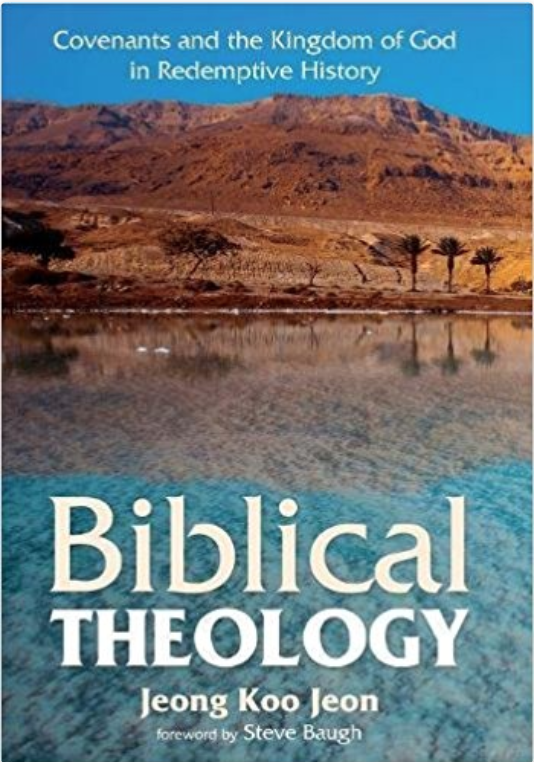Biblical Theology: Covenants and the Kingdom of God in Redemptive History
Understanding the primary storyline of the Bible (God's unfolding redemptive gospel through biblical history, finally revealed in the person and work of Jesus Christ), is the challenge, and should be the desire and goal, of every Christian. True worship depends on it.

While every story in the Bible is fascinating and captivating, they lose their perfect place and ultimate significance apart from the big picture they share - and there is a big picture! This amazing task is helped by Jeong Koo Jeon in his book, Biblical Theology: Covenants and the Kingdom of God in Redemptive History.
Jeon helps one navigate through the progressive storyline of Jesus, from the promise in the Old Testament to the fulfillment in the New Testament. Even though we live some 2,000 years since our Lord and Savior walked the earth and died upon a cross to secure our final and complete redemption, God’s ordained plan of saving sinners through Jesus Christ is the most important truth proclaimed and supported in all of biblical revelation.
Jeon does an amazing job of detailing Christ’s importance in the New Testament covenants as well as His prominent place in the Old Testament covenants. Throughout the centuries, the Church has fought and defended this story of redemption via many battles and has slowly but surely grown in many essential doctrines regarding this teaching of redemption and its development in the Holy Scriptures.
Today, it is books like Joen’s that help us to value and see how the past ages of the Church have documented the great reformation truths. He traces back to the reformers of the 16th century in part to lay the foundation of Christ alone, by faith alone, through grace alone in God’s redeeming work.
He traces this redemptive history in creation, the fall of man and subsequent redemption, and its final consummation as revealed in the Old and New Testaments. It’s very important to the reader to see how it all plays out from beginning to end. Jeon’s book delivers.
The good news of Christ had its beginning in Genesis 3:15, and as Jeon illuminates this clearly, he also recounts how this redemptive drama is progressively revealed through the other divine covenants of promise (e.g., the Covenant of Creation, the Noahic Covenant, the Abrahamic Covenant, the Mosiac Covenant, the Davidic Covenant and the New Covenant).
The biblical narrative can’t be properly understood apart from an understanding of the biblical covenants, how they relate to one another and how God’s kingdom is portrayed. Jeon handles these big themes well and never misses the big picture of God’s saving the redeemed by faith that is found ultimately in Christ.
In summary, Jeon’s book is not a verse-by-verse commentary, but rather a book that will give the reader the necessary categories to understand the reality and clarity of God’s redemptive plan in history.
Like the reformers, he explains it through God’s Creation, the Fall and the execution of man’s redemption, and the consummation of the eschatological kingdom. If you want to understand the importance and necessity of all the covenants in the right light of God’s redemption, you need to read this book.
More in Monthly Newsletter
April 1, 2024
If You Want to Be Great in God’s KingdomApril 1, 2024
Elders ReportApril 1, 2024
Deacons Report